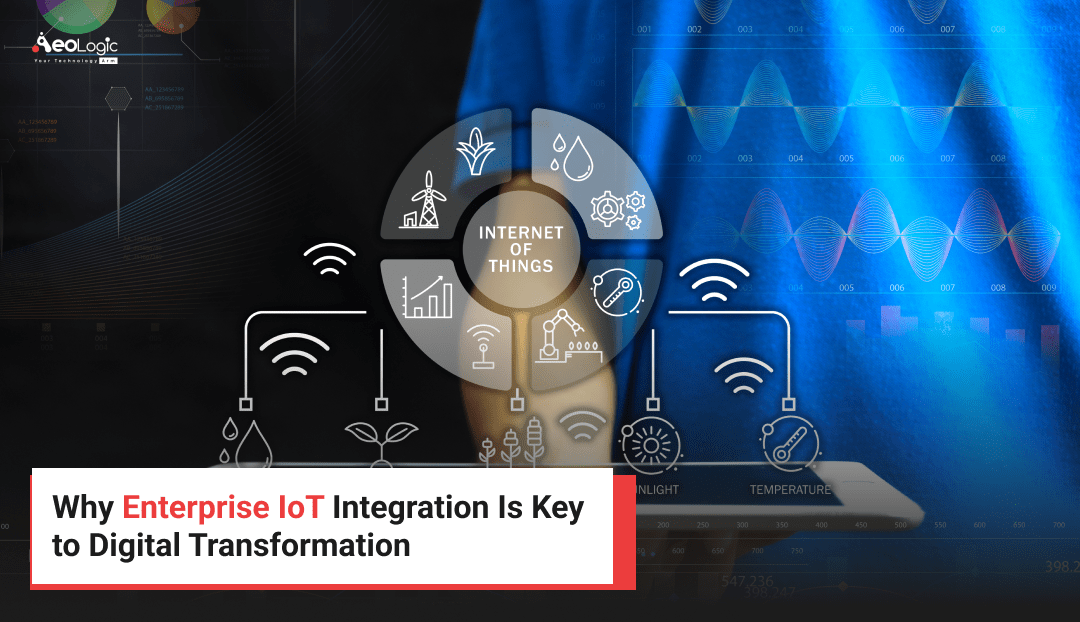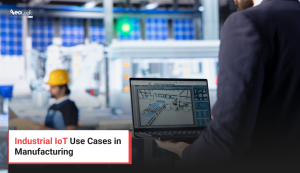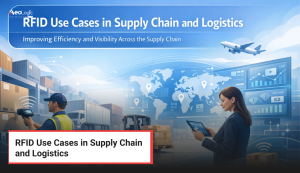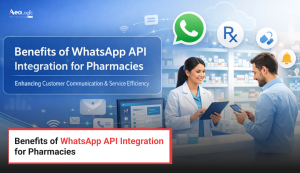Enterprises are the most important asset of the world that boosts the global economy, provide various services, and plays an important role in enhancing the infrastructure. Digital transformation has changed and evolved enterprises as well as other businesses by integrating a lot of digital solutions. The IoT solutions have always been a great tool that has played one of the most important parts in driving digital transformation.
However, many enterprises are still not aware of the enterprise IoT integration, as this has the potential to enhance their operations more than ever and provide them with a lot of success with digital transformation. We will provide information about how enterprise IoT integration can be a key aspect of digital transformation across enterprises.
Enterprise IoT integration became an essential tool for enterprises because enterprise IoT (Internet of Things) integration allows companies and enterprises to automate procedures, gather and analyze real-time data, and improve consumer experiences. Enterprise IoT integration allows businesses to execute digital transformation strategies more solidly by pricing various use cases and features like data analytics, sensing, detection, monitoring, and analysis.
This results in various benefits like increased efficiency, lower costs, and a competitive advantage because data-driven decision-making and new business models are made possible. Simply, enterprise IoT integration is about transforming businesses by utilizing data, automating procedures, and opening up new avenues for innovation and growth.
Global Market Analysis
The global enterprise IoT market has shown substantial growth over the past decade, as evidenced by increasing revenue figures at a CAGR of 13.5%. This growth trajectory is expected to continue, with projections estimating the market to reach USD 671.4 billion in 2024.
By 2025, the revenue is anticipated to significantly increase to USD 785.8 billion. Followed by a further rise to USD 905.9 billion in 2026. The following year, 2028, is forecasted to see revenues of USD 1,096.3 billion. With a more robust increase to USD 1,244.3 billion in 2029.
The market is projected to continue expanding, reaching USD 1,390.6 billion in 2030 and surging to USD 1,578.3 billion in 2031. In the global enterprise IoT market, small and medium-sized enterprises (SMEs) hold a significant majority, with 64% of the market share, underscoring their pivotal role in adopting IoT technologies. In contrast, large enterprises account for 36% of the market share.
Explore more: How IoT Software Solutions Are Transforming Enterprises
What is Enterprise IoT Integration?
The enterprise IoT integration refers to the implementation of IoT-powered solutions, devices, systems, sensors, etc, into enterprises to collect more important data to analyze to get a proper insight to make the right decisions. The IoT has the potential to connect various devices and create a network in which information flows smoothly and seamlessly.
This helps enterprises to achieve the digital transformation by implementing and integrating various other solutions that boost their efficiency and market growth. By integrating the power of enterprise IoT, businesses can unlock new opportunities, improve operations, and create a better experience for their customers.
Also Read: Implement Remote monitoring IoT system to your Business
Benefits of Enterprise IoT Integration in Boosting Digital Transformation
The integration of enterprise IoT offers various advantages to drive digital transformation, as here are a few key advantages mentioned below.
Data Collection and Analysis
The IoT devices and solutions are known for their data collection ability. The integration of enterprise IoT enables data collection from every operation in an enterprise that can be used by Artificial intelligence to analyze. This approach enables the identification of patterns, insights, and trends that could be used to enhance operations. There are various other aspects of supply chain like inventory monitoring, equipment performance monitoring, etc, that are possible with the IoT integration.
Process Automation
Many enterprises and businesses think that automation can only be achieved through AI, but with the enterprise’s IoT integration, many processes can also be automated. The IoT-powered sensors and devices can be used to monitor the equipment performance and any risk factors or errors that result in triggering alarms automatically, which helps to take potential preventive action. It can be used to better optimize resources, logistics management, and reduce costs.
Better Customer Experience
Enterprise IoT can collect customer interaction data that helps them to provide a more personalized experience every time they visit again. This helps businesses to improve various aspects like advertising, product design, customer support system, etc.
For example, a retail business can use sensors to track customers’ movement inside the stores to understand their likes and dislikes and provide them recommendations on that basis.
Better Operational Optimization
The enterprise needs a lot of resources and energy to perform operations, which sometimes leads to unnecessary consumption. IoT integration can enhance resource allocation and optimization, reduce energy consumption by monitoring, and also reduce costs by preventing equipment downtime due to failure. This overall enables enterprises to enhance operational optimization.
New Business Models
Enterprise IoT integration can help businesses create new products and services, such as data-driven offers, subscription models, and connected products and services. These innovative models have the potential to increase client loyalty and provide new revenue sources. For example, a manufacturing business can enable predictive maintenance using IoT-collected data.
Also Read: Top IoT Solutions for Heavy Equipment Management
Enterprise IoT Challenges and Solutions
In order to comprehend how to expedite transformation, it is imperative to first comprehend the factors that can impede it. Let us ascertain the primary digital challenges and propose potential solutions for their resolution:
#1: Disruptions Can Be Caused by Innovations
Working models are undoubtedly altered by the implementation of innovations. This is particularly true for extremely structured industries, such as rail, mining, or construction. Consequently, they must focus on digital solutions that prioritize structure. The fortunate advantage is that IoT technologies are adaptable and can be implemented incrementally. In recent years, we have observed effective examples of industries that were previously unsuccessful in the digital sector but have now achieved significant success.
For example, healthcare was identified as one of the industries with the least amount of digitization in 2015. Nevertheless, healthcare, along with the financial and services sectors, was identified as one of the most prominent adopters of digital business strategies in 2018. Healthcare is effectively managing the adoption of the Internet of Things (IoT) and is continuing to evolve, as evidenced by the proliferation of telemedicine, wearables, smart pharmacies, and smart hospitals throughout the nation.
#2: Safety Concerns
We suggest conducting marketing research more frequently if your company is experiencing technical difficulties with an EIoT integration. The technical tools of Enterprise IoT providers are being updated to expand the potential implementation area, as the statistics are now available. The potential remedy for mining operations, which are typically located in vast and difficult-to-reach areas and suffer from a lack of connectivity, is the implementation of mesh nets to ensure a dependable IoT ecosystem.
Consequently, the entire region is meticulously monitored, and you can be confident that your mining machinery will not malfunction in the upcoming months. 
#3: Resistance
Line laborers are generally less resistant to innovation. The most recalcitrant individuals are typically those in the highest positions of authority, as they are accountable for the entire organization. Essentially, the only correct course of action is to approach innovations pragmatically, carefully evaluating all the advantages and disadvantages.
Consequently, senior executives must receive comprehensive and highly accurate reports regarding the impact of specific Enterprise IoT solutions on the company’s revenue and business processes. It is imperative to compute all scenarios, hazards, and ROI and provide objective statistics when developing an implementation strategy. Consequently, there is a greater likelihood that a technology that is essential to a specific enterprise will be approved.
Also Read: How To Implement IoT in Your Business and Why It Matters?
Cost Of Implementing Enterprise IoT Integration
After analyzing various factors like number of IoT devices, level of complexity, enterprise infrastructure size, etc, the estimated costs of enterprise IoT development can vary significantly, but generally fall between $35,000 and $150,000 for small to medium-sized projects and $200,000 to $350,000+ for larger, more complex implementations. Here is are average cost breakdown mentioned below.
-
- Basic App Development: $10,000 – $25,000 (Smart Home) / $15,000 – $40,000 (Industrial).
-
- Advanced Features: $25,000 – $50,000 (Smart Home) / $40,000 – $80,000 (Industrial).
-
- Hardware and Sensor Integration: $5,000 – $20,000 (Smart Home) / $20,000 – $50,000 (Industrial).
-
- Security Features: $5,000 – $15,000 (Smart Home) / $15,000 – $30,000 (Industrial).
Remember, these are just estimated costs that can vary and change according to various factors. So, before estimating the cost, first analyze your business or enterprise’s various factors and aspects. This helps to give you the right estimated cost.
| Cost Component | Smart Home Projects (USD) | Industrial Projects (USD) |
|---|---|---|
| Basic App Development | $10,000 – $25,000 | $15,000 – $40,000 |
| Advanced Features | $25,000 – $50,000 | $40,000 – $80,000 |
| Hardware & Sensor Integration | $5,000 – $20,000 | $20,000 – $50,000 |
| Security Features | $5,000 – $15,000 | $15,000 – $30,000 |
| Total Estimated Cost Range | $35,000 – $150,000 | $200,000 – $350,000+ |
We are: IoT Cloud Solutions Company in India
Final Take
The future of enterprise for digital transformation depends on various trends and opportunities. There are various trends like AI and cloud integration, 5 G technology adoption, edge computing, advanced analytics, etc, that are going to decide the fate. Since these trends and technologies are powerful, the future seems to be more advanced and powerful with enterprise IoT integration.
The enterprises should bow to IoT technology that is bringing digital transformation to every operation that enhancing their efficiency and productivity in a fast manner to stay far ahead from the other counterparts.
At Aeologic Technologies, we pride ourselves on being experts in delivering tailored IoT solutions that drive innovation and efficiency. With years of experience and a commitment to excellence, we’re here to partner with you on your IoT journey.
Do you have questions about an IoT project? Speak with one of our experts today at +91-120-3200058 Email us at support@aeologic.com
FAQs
How does IoT integration support digital transformation?
IoT integration provides real-time data and automation capabilities that help businesses optimize processes, enhance customer experiences, and create new digital business models.
What industries benefit the most from Enterprise IoT integration?
Manufacturing, logistics, healthcare, retail, and smart cities are among the top industries leveraging IoT integration for operational efficiency and innovation.
What challenges can enterprises face during IoT integration?
Common challenges include data security concerns, system compatibility, high implementation costs, and the need for skilled personnel to manage IoT ecosystems.
How can businesses ensure successful IoT integration for digital transformation?
Success depends on clear strategy alignment, choosing scalable IoT platforms, focusing on data security, and partnering with experienced IoT solution providers.

I’m Deepika Pandey, an SEO strategist and content writer with 6+ years of experience. I create SEO-friendly content that drives traffic and engages readers. I combine data insights with creativity to help businesses grow their online presence effectively.






